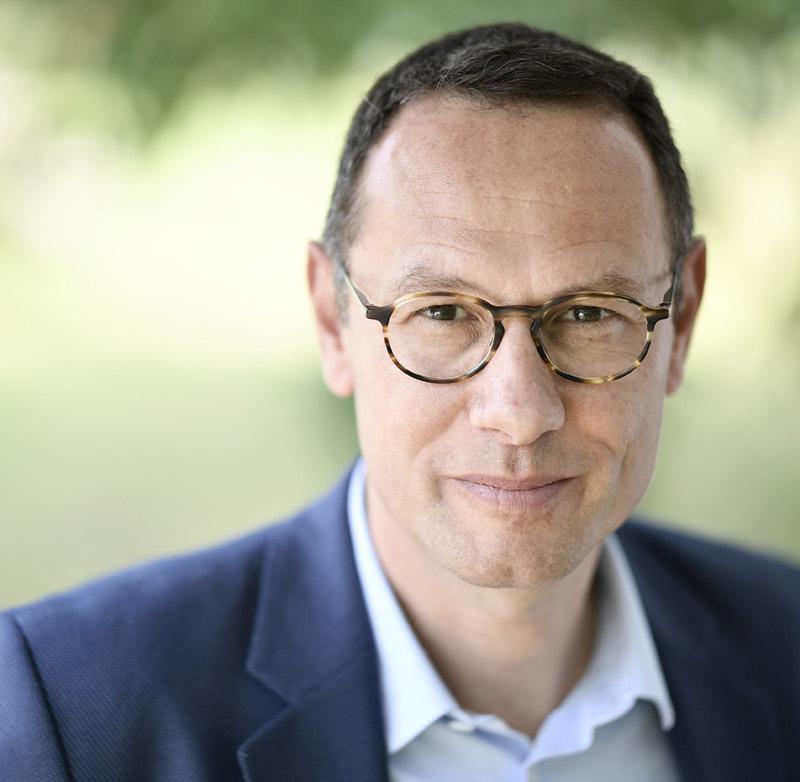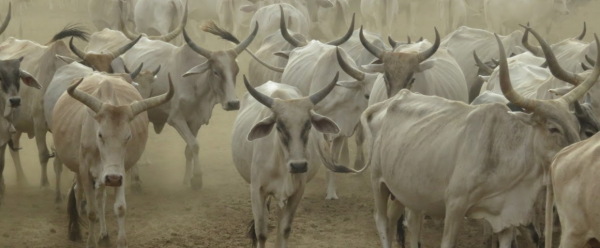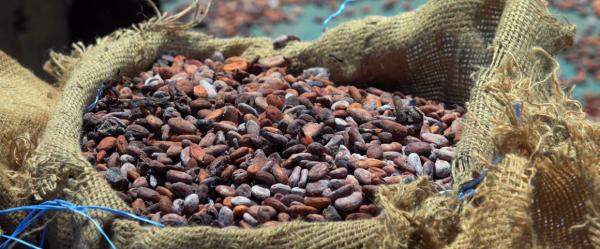Expert view 23 January 2026
- Home
- CIRAD news
- News
- Thierry Lefrançois One Health High-Level Expert Panel
Thierry Lefrançois: “The launch of the One Health High-Level Expert Panel is a crucial step in preventing global epidemics”

A One Health High-Level Expert Panel, initiated by the French government with the support of the German government, was launched on 12 November 2020 at the Paris Peace Forum. What is the aim?
Thierry Lefrançois: The COVID-19 crisis has highlighted the critical need to better detect, prevent, manage and control future pandemics, from the local level up to the global level. To achieve this objective, it is crucial to connect the different sectors of human health, animal health and environment, and especially their actors who will be able to dialogue and to listen to one another in order to ultimately anticipate, and to act quickly and effectively.
The launch of the One Health High-Level Expert Panel is thus a key step in preventing global epidemics. A group of scientists, of which I am a member, signed an op-ed in the newspaper Le Monde calling for the creation of just such a structure.
Indeed, the environmental component, which was hitherto somewhat absent from questions concerning integrated approaches to health, will be strengthened with the participation of UNEP in the WHO-OEI-FAO tripartite One Health alliance. This is excellent news and a recommendation that several scientists at CIRAD and their peers at the Royal Veterinary College and Mahidol University also recently shared.
See > One Health: integrating ecosystem health to boost operational potential
In your opinion, what role should the High-level Panel play ?
T.L.: The Panel will make recommendations that integrate the constraints and characteristics of the different health sectors, at the international level.
Building on these recommendations, states and international organizations – WHO, OIE, FAO and UNEP – need to be able to implement measures, procedures and operations in order to ensure better anticipation, surveillance, early action and reaction in the face of disease outbreaks. They must also be in a position to build and promote socio-ecosystems that avoid or limit outbreaks. And if these outbreaks cannot be avoided, then resilient socio-ecosystems are required.
The Expert Panel will also need to support, but also potentially to help to steer national, regional and international health policies, by accompanying WHO, OIE, FAO, UNEP and states.
Finally, in order to ensure strong support for the most vulnerable countries, especially in the global South, which is badly affected by disease outbreaks, the Panel will need to help these actors to set up research and health management systems that are applicable to all countries and regions. Territorial specificities will need to be taken into account, within a framework of equity and international cooperation. Although populations in the South may present high resilience due to their history and their environment, the ecosystems within which they evolve are amongst the most fragile due to the overexploitation of natural resources, especially for export.
According to your experience and to that of CIRAD, what types of actors should be involved in the new structure?
T.L.: To ensure the approach is truly operational, the Expert Panel must engage all actors involved in understanding and managing disease outbreaks. Scientists from all disciplines first of all: microbiology, epidemiology, entomology, ecology, physics/climate, sociology, anthropology, etc. But also specialists in health networks, modelling, foresight and the human and social sciences, etc.
It is essential to foster interactions between disciplines as well as real debates on the issues. This is the condition under which the Expert Panel will be able to produce a shared analysis and joint recommendations.
It must also include representatives of international organizations – WHO, FAO, OIE, UNEP – and of other expert bodies such as IPBES and IPCC. In addition, experts from ministries and the professional world – agriculture, food, health, environment – could be involved in order to integrate the public and private sectors.
Finally, it will be important to ensure linkages between the Panel and civil society, at least by creating a forum for debate between the expert group, the public and NGOs.
According to Jean-Yves Le Drian, the French Minister of Foreign Affairs, “Multilateralism is not a dogma; it’s not an ideology. It’s an effective method, and it’s a method that works”. International partnerships are one of CIRAD’s specificities. How is this experience leveraged for health issues?
T.L.: Several regional networks, which CIRAD created by applying the One Health concept, have already proven effective in helping to limit the entry of animal diseases in specific territories or in controlling them. This is the case of actions conducted by two networks coordinated by CIRAD from two French overseas departments.
The CaribVET network , coordinated from Guadeloupe, includes research and academic organizations, the veterinary service departments from 33 countries and territories, but also regional and international organizations CARICOM, USDA, IICA, OIE, FAO). The One Health Indian Ocean network , associated with the SEGA One Health Network, includes veterinary and human health representatives from the five Indian Ocean Commission countries, representatives of the Commission itself and of international organizations (OIE, WHO, FAO).
The different actions coordinated by CaribVET on avian influenza, in particular early warning systems and strengthened border surveillance, helped to prevent the disease from entering the Caribbean in 2016. And the One Health Indian Ocean network contributed to controlling outbreaks of foot-and-mouth disease in Rodrigues Island (Mauritius) and Rift Valley Fever in Mayotte in 2019. Together, these networks have more than 15 years of experience. They have made tremendous efforts to strengthen coordination and to build trust between actors to ensure effective information sharing.
Two other platforms in partnership for research and training (dP) contribute to integrated approaches to health at a regional level: GREASE in Southeast Asia and RP-PCP in Southern Africa . They combine research/development activities and long-term partnerships on issues concerning disease outbreaks or interactions between wild and domestic animals. They have also contributed to improving the management of outbreaks such as that of avian influenza in Vietnam.
In France, the national platform for epidemiological surveillance in animal health, ESA, brings together public and private actors working in epidemiological surveillance of the country *. The ESA platform monitors around 20 health hazards in livestock and wildlife. CIRAD coordinates its international health monitoring unit (VSI), along with ANSES and the French Directorate-General for Food. Since 2013, the ESA system has thus not only improved the detection of animal diseases at borders, but also strengthened and coordinated surveillance and protection systems in metropolitan France and the French overseas departments and territories.
How are these examples of regional or national networks and CIRAD positioned in relation to the creation of the High-Level Expert Panel?
T.L.: These examples clearly illustrate the potential for improving outbreak management by implementing the One Health concept and integrated multi-stakeholder approaches.
The One Health High-Level Expert Panel, which has just been launched, puts this ambition on another geographical scale by fostering not only networks at the international level, but also the development or consolidation of equivalent structures at the regional and national levels.
The recommendations it will provide need to be supplemented by research and development actions in all of the geographical areas faced with disease outbreaks. Through its experience in integrated approaches to health and the construction of partnership networks, CIRAD has a major role to play in the Panel.
In terms of research, especially operational research, we also aim to further strengthen the association of our experts in the fields of agriculture, biodiversity, territorial management, plant health, soil health, etc. We are convinced that plant health plays a role in global health and we aim to multiply the projects that implement health-agriculture-territory interactions by involving all of CIRAD’s units and partners concerned. Through the health of territories, we will be able to foster the construction of resilient socio-ecosystems, for a healthy planet.
* DGAL, ANSES, INRAE, CIRAD, GDS, ADILVA, OFB, SNGTV, Fédération Nationale des Chasseurs, La Coopération Agricole



























